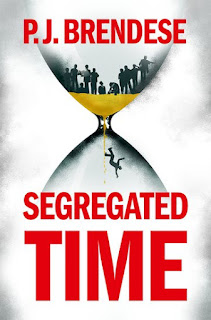New from Oxford University Press: Segregated Time by P.J. Brendese.
About the book, from the publisher:
When Martin Luther King Jr. argued on behalf of civil rights he was told that he was "too soon." Today, those demanding reparations for slavery are told they are "too late." What time is it? Or perhaps the appropriate question is: whose time is it? These questions point to a phenomenon of segregated time: how a range of political subjects are viewed as occupants of different time zones, how experiences of time diverge across peoples, and how these divergent temporal spheres are mutually entwined in ways that serve the interests of white supremacy.--Marshal Zeringue
In Segregated Time, P.J. Brendese takes a time-sensitive approach to race as it pertains to the acceleration of human disposability, dynamic identity formation, and the production and allocation of social and economic goods. Although typically conceived in terms of space, Brendese argues that racial segregation and inequality are also sustained through impositions on human time. Drawing on a range of Africana, Latinx, and Indigenous political thought, Brendese demonstrates the way in which time is weaponized against people of color and advances a theory of "white time" as a possessive, acquisitive, colonizing force. The chapters explore how migration politics involves temporal borders, how the extended lifetimes of some are built on the foreshortened lives of others, how racial stigma conveys debt and "subprime time," and how whiteness functions as a store of credit through time. In this innovative inquiry into contemporary orders of time and race, Segregated Time examines who is regarded as behind the times, who is cast out of time through racial violence, who "does time" in the prison system, and the racial divides of lives on borrowed time in an epoch of climate catastrophe.






